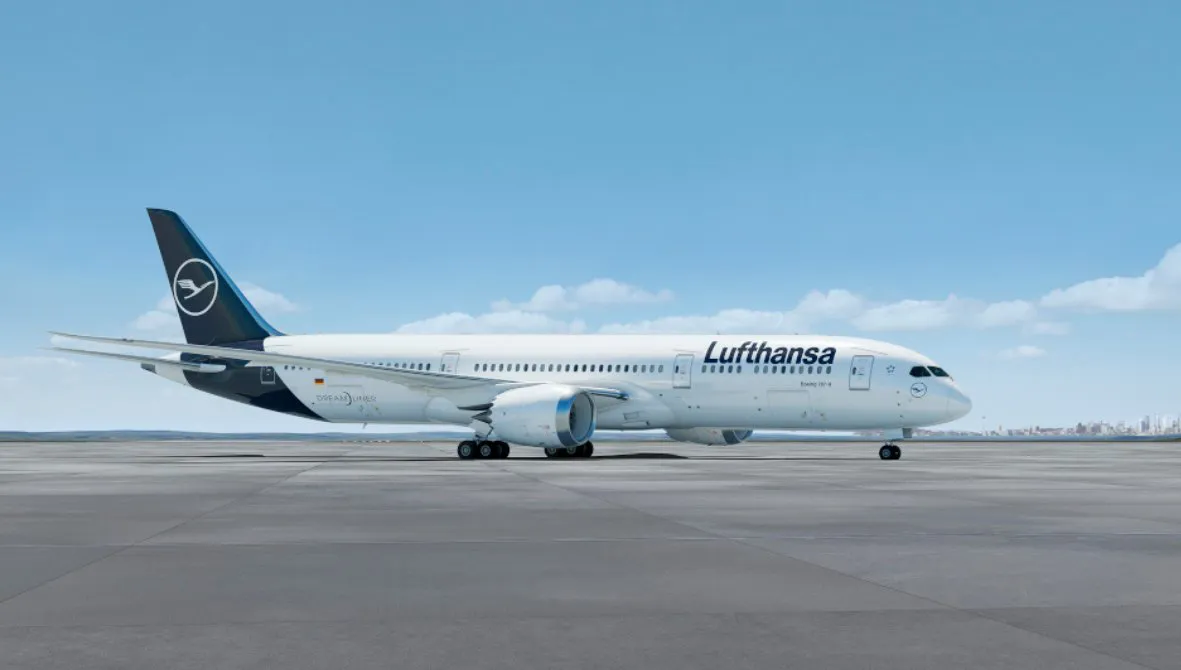
Lufthansa says smaller is beautiful as it axes A380
Mar 04, 2021

Lufthansa has announced the retirement of its Airbus A380 fleet, signaling a shift towards more efficient and smaller aircraft. This decision reflects the airline's strategy to adapt to changing market demands and enhance operational flexibility. By focusing on smaller planes, Lufthansa aims to optimize routes and improve overall passenger experience while reducing costs. The move aligns with a broader industry trend prioritizing sustainability and efficiency in air travel. As airlines navigate post-pandemic recovery, Lufthansa's approach emphasizes a commitment to innovation and responsiveness in a rapidly evolving aviation landscape.
The aviation industry has been undergoing significant changes, and major airlines are re-evaluating their fleets. Lufthansa, one of Europe's leading airlines, recently announced its decision to phase out the Airbus A380 from its operations. This shift signifies a trend where "smaller is beautiful," as the airline focuses on more efficient and flexible aircraft. In this article, we will explore the reasons behind Lufthansa's decision, the implications for the airline industry, and the advantages of smaller aircraft.
Lufthansa’s Decision to Ax A380
The Airbus A380, known for its immense size and capacity, has been a flagship model for many airlines since its introduction. However, Lufthansa has decided to retire this giant from its fleet, citing several key factors:
- Changing Market Demand: Post-pandemic travel patterns have shifted, with passengers increasingly preferring direct flights to their destinations. Smaller aircraft can operate more efficiently on these routes.
- Operational Costs: The A380, while capable of carrying over 500 passengers, incurs higher operational costs. Smaller planes tend to have lower fuel consumption and maintenance expenses.
- Flexibility: Smaller aircraft provide airlines with the flexibility to adjust routes and schedules based on demand. This adaptability is essential in today’s dynamic market.
The Rise of Smaller Aircraft
With the phasing out of the A380, Lufthansa is not alone in this trend. Many airlines are opting for smaller, more efficient aircraft models. The benefits of smaller planes include:
| Advantages of Smaller Aircraft | Details |
|---|---|
| Fuel Efficiency | Smaller aircraft typically consume less fuel, leading to lower greenhouse gas emissions and reduced operational costs. |
| Higher Utilization Rates | Airlines can deploy smaller aircraft on routes with fluctuating demand, optimizing seat load factors. |
| Enhanced Passenger Experience | Smaller planes often provide a more comfortable travel experience, with better service ratios and reduced crowding. |
| Environmental Impact | Smaller aircraft contribute to lower emissions, aligning with global sustainability goals. |
The Industry Implications
Lufthansa’s decision to retire the A380 is indicative of broader trends within the aviation sector. As airlines adapt to new realities, several implications arise:
- Increased Competition: Airlines that invest in more efficient fleets can better compete in the market, attracting environmentally conscious consumers.
- Fleet Modernization: The emphasis on smaller aircraft encourages airlines to update their fleets with newer, more efficient models, enhancing overall safety and passenger experience.
- Route Optimization: By leveraging smaller aircraft, airlines can optimize their networks, offering more direct flights and reducing travel times.
Lufthansa’s Future Fleet Strategy
As Lufthansa moves forward without the A380, the airline is focusing on integrating smaller, more versatile aircraft into its operations. This strategy includes:
- Investment in New Aircraft: Lufthansa is likely to invest in models like the Airbus A220 and A321XLR, which offer greater fuel efficiency and range.
- Enhanced Connectivity: The airline aims to improve connectivity between smaller airports and major hubs, catering to the evolving needs of travelers.
- Commitment to Sustainability: By opting for smaller, more efficient aircraft, Lufthansa is taking steps to reduce its carbon footprint and promote sustainable travel.
Conclusion
Lufthansa's decision to phase out the A380 highlights a significant shift in the aviation industry towards smaller, more efficient aircraft. As market demand changes and operational costs rise, the trend of "smaller is beautiful" appears to be gaining momentum. Airlines that adapt to these changes will not only enhance their operational efficiency but also meet the needs of modern travelers looking for convenience and sustainability. The future of air travel may well be defined by the size of the aircraft, with smaller models leading the way into a new era of aviation.
Related Articles

Explore Thailand: The Best Islands to Visit for Paradise, Adventure, and Relaxation

The Ultimate Guide to the Best Islands in Thailand for Your Next Getaway

Do babies need passports? How to get a passport for a newborn

How to get a U.S. passport fast: here’s how to expedite the process

What is Mobile Passport Control: 5 reasons why you should use it

SENTRI vs. Global Entry: A detailed guide

Do you need a passport to go to the Bahamas? Let’s find out

Do you need a passport to go to Mexico? A detailed guide

Do you need a passport to go to Canada? We got the answer

Do You Need a Passport for a Cruise: An Essential Travel Guide

Booster Seat Requirements: All the Rules to Follow in Your Rental Car

What Are the World’s Most Powerful Passports, and How Does Yours Rank?

How to Take a Passport Photo at Home: A Helpful Guide

You've got to have heart! Southwest's new livery

Your opinion: Should water be free on low cost carriers?

Young women bolder than guys as solo travellers
